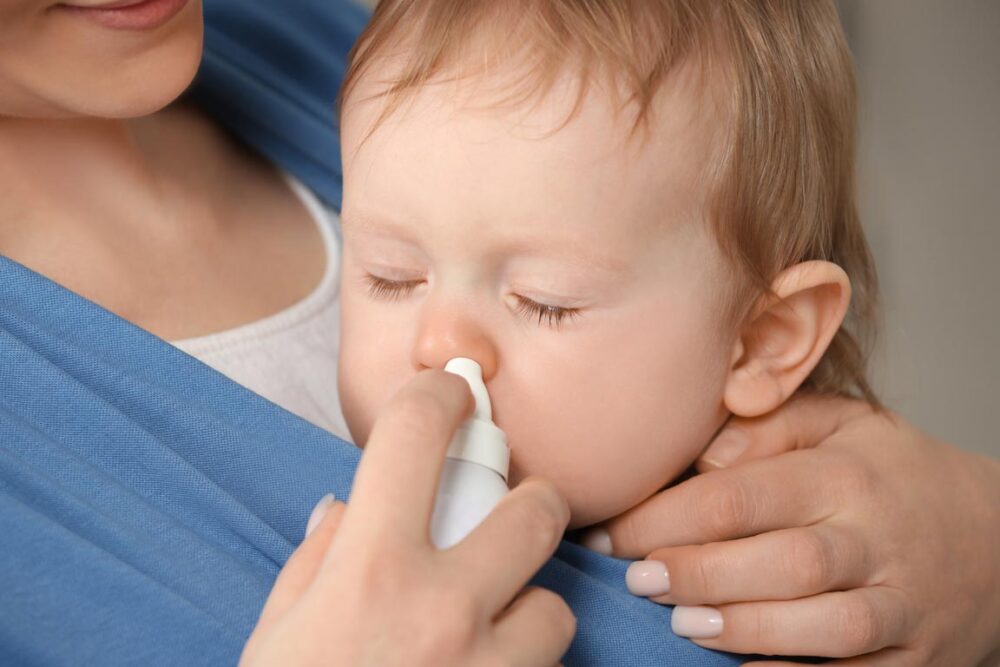Advertisment
Can hypertonic saline nasal drops can shorten cold duration in children?

Hypertonic saline (HS) nasal drop treatment can reduce by two days the length of the common cold in children, researchers reported on September 6. 2024 at the European Respiratory Society (ERS) Congress in Vienna, Austria.
The results of the ELVIS-Kids randomised controlled trial were presented by Professor Steve Cunningham from Child Life and Health, University of Edinburgh, UK. As background, he noted, “Children have up to 10 to 12 upper respiratory tract infections, what we refer to as colds, per year, which have a big impact on them and their families. There are medicines to improve symptoms, such as paracetamol and ibuprofen, but no treatments that can make a cold get better quicker.”
The purpose of the study was to investigate whether daily treatment with HS nose drops (2.6%/saltwater) could reduce the duration of colds in children age 0-6 years.
The investigators enrolled 407 children. When they developed a cold they were treated with either hypertonic saline ~2.6% (salt-water) nasal drops or usual care.
Overall, 301 children developed a cold. In 150 cases, parents received sea salt and were trained to apply salt-water nose drops to the children’s noses (three drops per nostril, a minimum of four times per day, until well). The remaining 151 children received usual care.
The researchers reported that the median duration of symptoms was 2 days shorter with HS nose drops than usual care, 6 days compared with 8 days, and that the reduction was statistically significant (p=0.004).
Fewer household members developed a cold in the HS nose drop cohort (n=66, 41%) vs usual care cohort (n=92, 58%), and the difference was statistically significant (p=0.008).
There were no serious adverse events associated with HS treatment.
Professor Alexander Möeller is Head of the ERS Paediatric Assembly and Head of the Department for Respiratory Medicine at the University Children’s Hospital Zurich, Switzerland, said “This is an important study that is the first of its kind to investigate the impact of salty nose drops in children with colds. Although most colds usually don’t turn into anything serious, we all know how miserable they can be, especially for young children and their families.
“This extremely cheap and simple intervention has the potential to be applied globally; providing parents with a safe and effective way to limit the impact of colds in their children and family would represent a significant reduction in health and economic burden of this most common condition,” he added.





